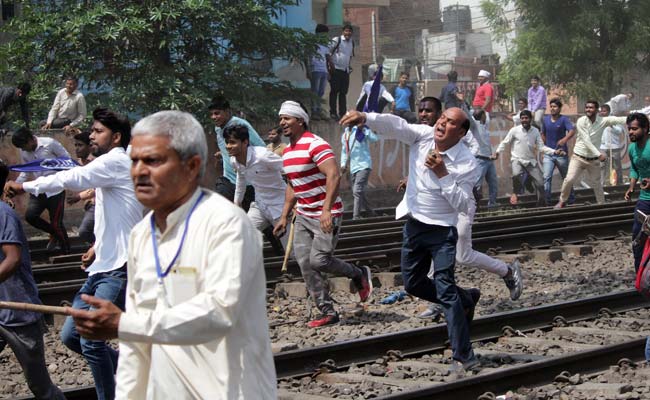
Hearing the centre's request to review its own order, the Supreme Court on Thursday said it was "100 per cent" for the protection of Dalits against atrocities but no one should be "falsely implicated". The government said the court's move in March to make it more difficult to arrest people for crimes against Dalits weakened the law and amounted to judicial activism. The court's order stopping the immediate arrest of people under the SC/ST (Scheduled Caste and Scheduled Tribes) law led to massive protests by Dalit groups. The government says that order should be suspended.
Here are the top 10 updates on the Supreme Court hearing on the Dalit law:
The government's top law officer KK Venugopal told the Supreme Court that its ruling had shaken the confidence of Dalits "in the ability of the state to protect them" and affected their morale. He also said it led to the death of nine people during a protest called by Dalit groups. "Our judgement did not incite any one to commit crime. Our judgment has been wrongly understood. The SC/ST community has full protection of this court," the top court said, refuting Mr Venugopal's argument.
The Supreme Court said its judgement can't be blamed for the loss of lives. "We are hundred percent for the protection of rights of SC/ST community. Those who took law into their hands should be punished in accordance with law. Those at fault need to be punished."
The government argued that the judgement could be termed as "judicial activism of the court" because a seven-judge verdict of 2002 dealt with "what amounts to legislation by courts".
The Supreme Court bench of Justice Adarsh Kumar Goel and Justice Uday Umesh Lalit said the investigating officer must be satisfied before arresting an accused. "Our concern was that without verifying of the allegation no case should be lodged against an innocent," it said.
On March 20, while declaring the changes to the law for Dalits, the Supreme Court had said on "several occasions", innocent citizens were termed as accused and officials were deterred from performing their duties, which was never the intention of the legislature while enacting the Dalit law.
The centre, backing protests against the ruling, said it diluted tough action to be taken against those accused of attacks, rapes and other atrocities on Dalits.
Citing previous verdicts, including introducing the collegium system of the appointment of judges, the court said, "The court has stepped in to fill the gaps in law."
But the government said the court could only lay down guidelines but can't make a law. "The court can only fill the gaps in a law but can't lay down law and it amounts to judicial activism."
Last month, Prime Minister Narendra Modi said his government will not let the law to prevent atrocities on Scheduled Castes and Scheduled Tribes to be diluted after the Supreme Court laid down new guidelines to prevent its misuse. "I want to assure the nation that the law which has been made stringent by us will not allowed to be affected (by the SC order)... Do not get trapped by the Congress and those parties who have surrendered to the Congress culture," he had said at an event in Delhi.
Accused by the opposition of being anti-Dalit, PM Modi said the government acted fast to file a review petition. He said people often wonder about the delay in moving the top court. "But only a few know that there were public holidays in between. When I tell this to people, they realise how fast we acted," he said.

